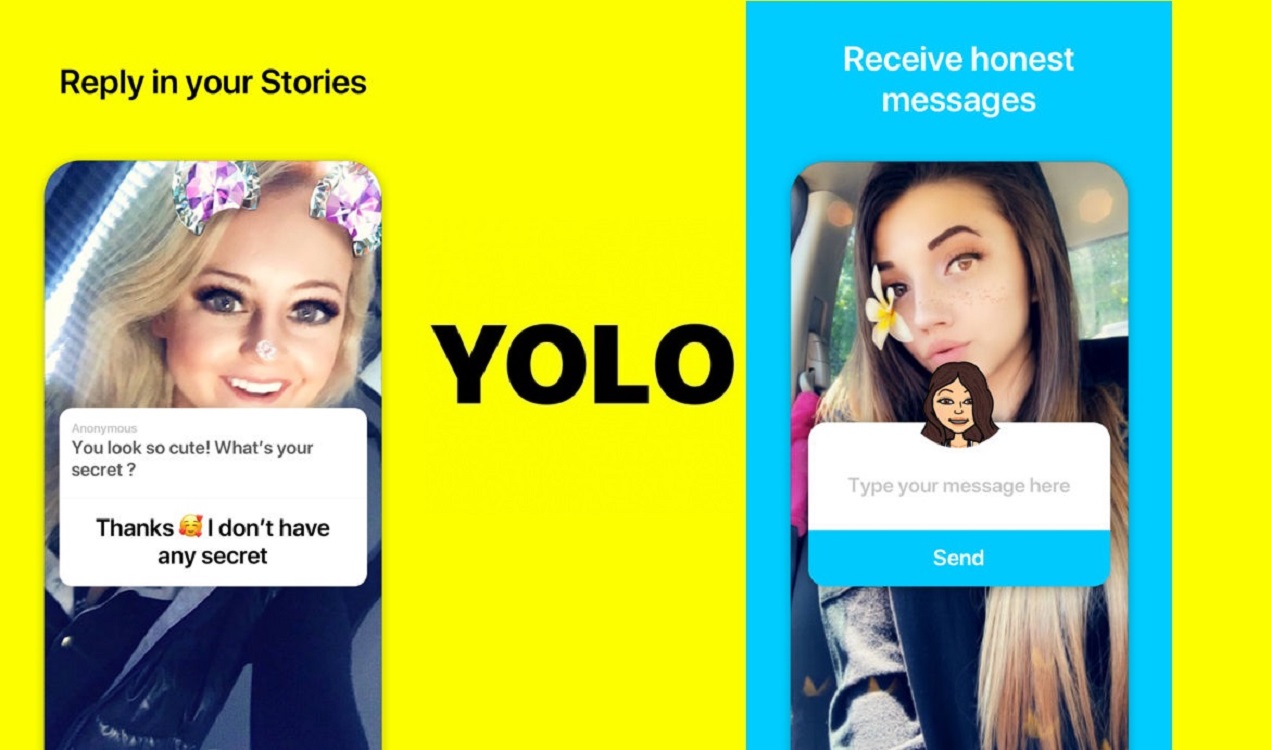Yolo App Stirs Controversy: What Parents Need to Know
Yolo is back, but not as a simple catchphrase. Now, it's a Snapchat-adjacent app with some potential privacy concerns.
Yolo, a new social media app with an old-fashioned name, has quickly become very popular among teenage Snapchat users. It’s currently the fourth most-popular free program in the Apple App Store and has spent five weeks straight on the Top 10 list, ever since its release on May 2.

Yolo: What is it?
Yolo is an anonymous question-and-answer app that links with Snapchat as a way to share comments and questions with others. With Yolo, you can post a reply to a comment, or answer a question on a Snapchat story. Either function lets you attach a picture. The final product looks something like an Instagram story question sticker. However, unlike Instagram, Yolo hides usernames from submissions.
MORE: A Snapchat Guide for Parents
How it works
After downloading Yolo, you can log in with your phone number, or connect directly to Snapchat. You’re instantly encouraged to “get anonymous messages” and create a question. The generic prompt Yolo provides is, “Send me honest messages,” but you can also design your own stickers. Customization options include text, sticker color, message font and Bitmoji icon. When you’re satisfied with your sticker, you hit a “share” button that redirects you to Snapchat, then plops the sticker in the middle of your screen. If you post the sticker to your story, your friends can swipe up to anonymously respond to your prompt, even if they don’t have the Yolo app. Yolo then collects their answers, which you can selectively share to your story.
Roll The Dice
The “dice” icon, found among the customization options, creates question prompts at random. Here are some examples of randomized messages:
Sign up to get the BEST of Tom's Guide direct to your inbox.
Get instant access to breaking news, the hottest reviews, great deals and helpful tips.
On a scale of 1-10 how funny do you think I am?
While some prompts seem silly and harmless, others suggest how curious teens are for personal feedback and social gossip.

Cyberbullying concerns
Yolo’s success relies on Snapchat’s ubiquity among teenagers. According to Pew Research, 59% of teens have experienced cyberbullying through digital platforms. As with Sarahah, YikYak and other anonymous apps before it, Yolo is susceptible to being a platform for name-calling, rumor-spreading and hate speech. Apple removed Sarahah from the App Store because of overwhelming harassment complaints from users. Yolo’s app store description says the anonymity of comments encourages “positive feedback,” and claims users will forfeit their anonymous status if they’re caught sending negative messages. It’s unclear if Yolo is upholding that standard, and the ambiguity has raised concerns among parents, according to USA Today.
What parents can do
Parents should initiate conversations with their children about navigating technology and social media on a regular basis. As a parent, you may not be able to monitor your child’s entire digital presence, but you can encourage open communication and teach them how to handle cyberbullying or online gossip. If you want to know whether your child uses anonymous apps like Yolo, ask them first if they know about the app, and then about their experiences with it. Pay attention to their mood and how much time they spend on devices, too.
Kate Kozuch is the managing editor of social and video at Tom’s Guide. She writes about smartwatches, TVs, audio devices, and some cooking appliances, too. Kate appears on Fox News to talk tech trends and runs the Tom's Guide TikTok account, which you should be following if you don't already. When she’s not filming tech videos, you can find her taking up a new sport, mastering the NYT Crossword or channeling her inner celebrity chef.

